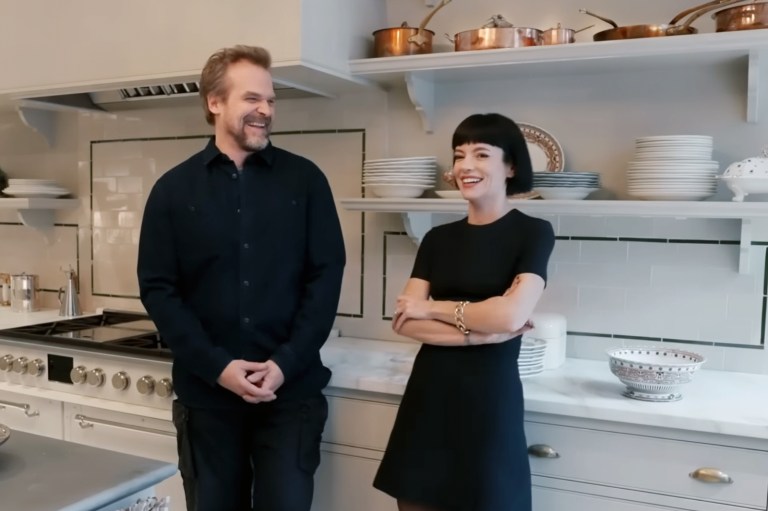
14 Successful Women In Male-Dominated Fields Reveal Their Approach To Killing It At ‘A Man’s Job’

1. Don’t allow yourself to be intimidated.
Louisa Court, 27, is one of the few female grips (lighting/rigging technicians in the film industry) in the UK. She says she was intimated at first by the physical side of the job.
“Some of the kit is hard to move. But you just have to figure out how to lift or move things differently,” she says, “[Now] I’m more confident about shouting and telling people where to get off.” (source)
2. Kill them with competence.
Jules Miller is the Co-founder of Hire and Esquire. Her strategy to overcoming bias in the workplace has been building business by using less money and fewer resources than her male counterparts.
“You have to kill them with competence. The only way to convert the people who don’t believe in you is to do an amazing job and succeed in spite of them.” (source)
3. Prove yourself.
Fran Wilkins, age 30, is the first female coxswain at the Filey lifeboat station in North Yorkshire, UK.
“The reality is that you are surrounded by men. At first, I felt I had to prove myself. Once I felt I had, it was fine.” (source)
4. Be a team player.
“Ultimately, you are part of a team, and when your team wins, you win,” says Lauren Talbot, the 27 year old Co-founder and Chief Data Officer of advisorConnect.
“Your team will eventually figure out what you are capable of, regardless of if you are wearing a skirt or pants, or if you have a low or high voice, or if you have short or long hair.” (source)
5. Find and rely on mentors.
Jo Manson, 35, is a surgeon currently working at the University of Pittsburgh Medical Center.
“Mentoring is essential for both sexes,” she says, “Most of my early role models were male. Most of my current mentors are male. I now know several female surgeons who inspire me, and my husband is a surgeon at the same stage of training – we support and encourage each other.” (source)
6. Tough it out.
Katie Gillard is a 21-year-old truck driver who works for Tarmac. She makes up the 0.5% of female truck drivers in the UK. When she went to take her HGV (Heavy Goods Vehicle) practical exams, she was the only girl.
“I’m used to people doing a double-take when I’m driving,” she says, “I get it every day, particularly when I’m sitting in traffic. It doesn’t bother me too much. But from what I see, women are always going to be a minority in this industry. It’s always going to be seen as a man’s world.” (source)
7. Take the bad with the good.
Alison Miller, age 38, drives trains for ScotRail. She makes up one of the 4% of female train drivers.
“The uniform is horrendous. You wear men’s steel-capped shoes. And the drivers’ jacket is supposedly unisex, but really you go out looking like you are wearing your partner’s clothes,” she says, “But there are a lot more things to enjoy about being a train driver.” (source)
8. Build a positive reputation for yourself.
“Reputation is everything,” says Melissa Warren, Partner and a leading Broker for TerraCRG.
“I’ve learned to hold my ground, be firm on my beliefs, and that you can build quite a following with the confidence that you radiate while doing so.” (source)
9. Find a balance, when to speak and when to listen.
Alison Morris, Co-founder and Director of Accounts and Customer Experience at Honey, shares advice from her mother that has helped her learn balance in the workplace.
“Knowing when to raise your voice and speak is important,” she says, “And quietly listening gives my team members the space to problem-solve, brainstorm, embrace their expertise, and share what’s most important to them in their role.” (source)
10. Embrace that you are a woman.
Rachel Kaplowitz, the CEO of Honey, talks about her fear of judgment being pregnant and working.
“For months, I struggled with the question of whether I should bring it up in meetings. How would investors react? How do you casually slip something so personal into something so professional?”
But, she says, eventually her body made the decision for her and she embraced it. She was both a mother and successful businesswoman, and yes that was possible. (source)
11. Stay professional no matter what.
Jolene Creighton is the founder of the science website, Quarks to Quasars. She had to send a rejection letter and received a terrible response, which despite wanting to respond angrily, responded in a professional manner.
“There was one older, white, academic man who felt the need to tell us that we are, “imperious little girls,” and that “we are not superior to [him]. I could have posted [this email] on professional forums. I could send it to journals where he has been published. I didn’t, because I am not that cruel (or insane), and it would really serve no purpose.”
“But I did respond to the email, stating that his reply was unprofessional and reminding him that it is a bad idea to go on the record using such rhetoric.” (source)
12. Be relentless in all aspects.
“The best tools in my toolkit thus far have been a relentless work ethic, an effort to expand my knowledge base daily, leading with self-awareness and confidence, and never giving up,” says Aarti Kapoor, Investment Banker for Moelis & Company.
“At the end of the day, being a woman on Wall Street is not a challenge for me — it’s a source of motivation.” (source)
13. Focus on the positives and eliminate the negatives.
Shiho Kawashima is an Assistant Professor of Civil Engineering and Engineering Mechanics at Columbia University.
“I just try to focus my energy on those I know respect me, whether they’re students or colleagues,” she says.
“Just do what you believe is the right thing and that will ultimately get you to where you want to be. And regarding the very few people who may be judging me or disregarding me because I’m young or a woman or whatever other thing, ultimately those aren’t the people who matter anyway.” (source)
14. Spark change to improve situations for others.
Caroline Lake, 41, is a mechanic in Norfolk. She talks about the difficulties in her career and what drives her forward.
“Working in other garages over the years, I did feel like an outsider. Some of the guys would make horrible, sexist comments, but I noticed many of the women drivers would want to talk to me. Because the industry isn’t regulated, some mechanics will take advantage of people’s lack of knowledge. It can be intimidating.”
“I think there are so few women because it’s a stereotypical male environment, but I plan to change that. There is no reason women can’t do it,” she says, “It’s not about brute strength. There is a tool for everything. In fact, women have certain characteristics that make them perfect for the trade. The more women that do it, the more other women will see it as an option.” (source)











